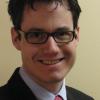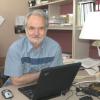Organizing Committee
 |
Jayne DanskaDr. Danska is a Senior Scientist at the Hospital for Sick Children and Professor in the Faculty of Medicine at University of Toronto with appointments in the Departments of Immunology, and Medical Biophysics. She has made contributions to understanding immunological and genetic causes of Type 1 diabetes (T1D), the molecular basis of acute lymphoid leukemia (ALL), and innate immune surveillance of normal hematopoietic and leukemic stem cells. She has lead multi-disciplinary projects applying genetic, genomic and immunological analysis in rodent models to identify T1D-risk genes and to determine how these variants control autoimmune pathogenesis. More recently these studies have addressed gene X environment interactions in T1D, specifically the role of the intestinal microbiome in modifying inherited disease risk in rodent models and in prospective longitudinal studies in children with high genetic risk for T1D. Her group defined relationships between DNA repair and genome damage surveillance pathways in ALL in rodent models and in primary human leukemia. Their work is focused on mechanisms that allow ALL dissemination to the central nervous system, and pre-clinical development of targeted kinase inhibitors to treat B-ALL. Dr. Danska is a Principle Investigator in The Californian and Canadian CIRM-CSCC study entitled “Development of Highly Active Anti-Leukemia Stem Cell Therapy (HALT)” and in the Ontario Institute of Cancer Research project on Cancer Stems Cells. Dr. Danska and her collaborators discovered a signaling pathway in macrophages pivotal to the survival of human hematopoietic stem cells (HSC) and acute myeloid leukemia stem cells (AML-LSC) that sustain leukemic growth. They are developing biologic therapeutics to manipulate this axis to improve outcomes of HSC transplantation, and to block the survival of AML-LSC. |
 |
Jinko GrahamJinko Graham is an Associate Professor of Statistics and Actuarial Science and a member of the Statistical Genetics Working Group at Simon Fraser University. Her research is directed towards the development of statistical methods for inference from genetic data, with a focus on genetic association studies. One question of interest is incorporating the gene genealogies underlying genotypes at multiple markers to fine map traits. Another question is the unbiased display and inference of statistical interaction between genes and the environment in complex diseases of early onset, using data from cases and their parents. Much of her research involves complex data structures and so has a strong computational component. |
 |
Celia GreenwoodDr. Greenwood is Senior Investigator at the Lady Davis Institute of the Jewish General Hospital in Montreal, and Associate Professor at McGill University in the Departments of Oncology, and Epidemiology, Biostatistics and Occupational Health. She is a statistician with an interest in methodology for the analysis of genetic and genomic data. Her methodological work spans family studies looking for patterns of inheritance of disease-causing genes, case-control studies looking for associations between anonymous markers and disease status, gene expression studies examining differences between patient groups or tissues, and estimation of copy number variation in the genome. Currently, she is working on methods for the analysis of rare genetic variants, such as those identified by sequencing studies, and also on methods for characterizing genomic abnormalities in tumours. |
 |
Paul LaskoProf. Lasko received his PhD from the Massachusetts Institute of Technology in 1986 and joined McGill in 1990 after a postdoctoral period at the University of Cambridge. Using the Drosophila system, Dr. Lasko’s research concerns regulatory processes that control gene expression at the levels of mRNA stability or translation, and that underlie germ cell or early embryonic development. He received the Award of Excellence from the Canadian Society of Genetics in 2004. At McGill he served as Chair of the Department of Biology from 2000 -2010. He assumed his position at CIHR in May 2010 but maintains his research lab at McGill. Dr. Lasko has been highly active in research grant adjudication and served on CIHR or Canadian Cancer Society grant panels continuously since 1995. He has also worked extensively for the Human Frontiers of Science Program Organization (HFSPO) over the past ten years, serving on its program grant panel from 2001-2005, and then as one of two Canadian representatives on the Council of Scientists. He chaired the HFSP Council of Scientists since 2007-2010. Dr. Lasko also served as President of the Genetics Society of Canada from 2007-2010. As Scientific Director, Dr. Lasko oversees the Institute’s strategic research funding initiatives, many of which involve fostering international partnerships. |
 |
Étienne RicherDr. Étienne Richer first joined McGill University as a postdoctoral scientist after receiving his PhD in Virology and Immunology. The research he conducted with Danielle Malo within the CIHR Team in Mutagenesis and Infectious Diseases allowed him to tackle research challenges in a multi-disciplinary environment. After successful development of the bacterial phenotyping platform developed during the pilot study phase, Dr. Richer was further involved in the expansion of this effort. Seeking to expand his expertise in knowledge transfer and pharmacoeconomics, Dr. Richer then joined BioMedCom Consultants Inc. Working for the public, private and not-for-profit sectors during that period, he was involved in numerous projects covering a broad range of healthcare issues from neonatology to biologics therapies and reimbursement policies. Dr. Richer returned to McGill University in 2011 as the Assistant Director for the CIHR Institute of Genetics. Dr. Richer has been fully involved in the strategic orientation of the institute, the development of its team and the delivery of its activities. While establishing tight links with the research community and supporting national networks, an international focus is also infused in these three sectors. |
 |
Erwin SchurrErwin Schurr obtained his Ph.D. from the Institute of Biophysics and Radiation Biology at the Albert-Ludwigs University in Freiburg/Br, Germany. He then did his postdoctoral studies in molecular genetics with E. Skamene and P. Gros at McGill University. In 1991, he joined the McGill Centre for the Study of Host Resistance and the Faculty of Medicine at McGill as Assistant Professor. He is a James McGill Professor of Human Genetics and Medicine at McGill University, and a member of the Research Institute of the McGill University Health Centre. His main research interest is the identification of host genetic factors predisposing to tuberculosis and leprosy; research that is supported by both national and international funding agencies. He has published extensively on the identification of genetic host susceptibility factors in both leprosy and tuberculosis. He has established field sites in several endemic countries for genetic epidemiological studies of tuberculosis and leprosy and is involved in projects aiming to develop effective low cost tools for the control of both diseases. His current research focus is on the identification of the genetic variants that confer resistance to infection with Mycobacterium tuberculosis, and the use of genetic findings to instruct public health policy. |
 |
Tracy Zeisberger |